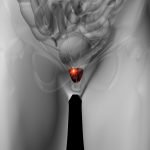Apple Watch May be Able to Detect Atrial Fibrillation
Node Smith, ND
A preliminary report from Stanford University School of Medicine shows promise of wearable technology being used to detect atrial fibrillation.1 The research was part of the Apple Heart Study, an unprecedented virtual study including over 400,000 enrolled individuals. The study concluded that wearable technology is able to safely identify heart rate irregularities, including atrial fibrillation, a leading cause of stroke in the U.S.
The Apple Heart Study
The study was launched with sponsorship by Apple Inc. in November 2017 to determine whether a mobile app that uses data from a heart-rate pulse sensor on the Apple Watch can identify atrial fibrillation. The condition often remains hidden because many people don’t experience symptoms.
Key findings from the study
- Overall, only 0.5 percent of participants received irregular pulse notifications, an important finding given concerns about potential over-notification.
- Comparisons between irregular pulse-detection on Apple Watch and simultaneous electrocardiography patch recordings showed the pulse detection algorithm (indicating a positive tachogram reading) has a 71 percent positive predictive value. Eighty-four percent of the time, participants who received irregular pulse notifications were found to be in atrial fibrillation at the time of the notification.
- One-third (34 percent) of the participants who received irregular pulse notifications and followed up by using an ECG patch over a week later were found to have atrial fibrillation. Since atrial fibrillation is an intermittent condition, it’s not surprising for it to go undetected in subsequent ECG patch monitoring.
- Fifty-seven percent of those who received irregular pulse notifications sought medical attention.
Potential role of innovative digital technology in preventative health care
“The results of the Apple Heart Study highlight the potential role that innovative digital technology can play in creating more predictive and preventive health care,” said Lloyd Minor, MD, dean of the Stanford School of Medicine. “Atrial fibrillation is just the beginning, as this study opens the door to further research into wearable technologies and how they might be used to prevent disease before it strikes — a key goal of precision health.”
All about the Apple Study
For the study, each participant was required to have an Apple Watch (series 1, 2 or 3) and an iPhone. The most recent Apple Watch, which features a built-in ECG, wasn’t part of the study, as it was released after the study’s launch. The Apple Heart Study app intermittently checked the heart-rate pulse sensor for measurements of an irregular pulse. If an irregular pulse was detected, the participant received a notification and was asked to schedule a telemedicine consultation with a doctor involved in the study through American Well. Participants were then sent ambulatory ECG patches through BioTelemetry, which recorded the electrical rhythm of their hearts for up to a week.
The Stanford principal investigators were Mintu Turakhia, MD, associate professor of cardiovascular medicine, and Marco Perez, MD, associate professor of cardiovascular medicine, and the study chair was Kenneth Mahaffey, MD, professor of cardiovascular medicine.
Findings have the potential to help patients and clinicians
“The study’s findings have the potential to help patients and clinicians understand how devices like the Apple Watch can play a role in detecting conditions such as atrial fibrillation, a deadly and often undiagnosed disease,” said Turakhia. “The virtual design of this study also provides a strong foundation upon which future research can be conducted to explore the health implications of wearable technology.”
“The performance and accuracy we observed in this study provides important information as we seek to understand the potential impact of wearable technology on the health system,” said Perez. “Further research will help people make more informed health decisions.”
From Stanford University School of Medicine
 Node Smith, ND, is a naturopathic physician in Humboldt, Saskatchewan and associate editor and continuing education director for NDNR. His mission is serving relationships that support the process of transformation, and that ultimately lead to healthier people, businesses and communities. His primary therapeutic tools include counselling, homeopathy, diet and the use of cold water combined with exercise. Node considers health to be a reflection of the relationships a person or a business has with themselves, with God and with those around them. In order to cure disease and to heal, these relationships must be specifically considered. Node has worked intimately with many groups and organizations within the naturopathic profession, and helped found the non-profit, Association for Naturopathic Revitalization (ANR), which works to promote and facilitate experiential education in vitalism.
Node Smith, ND, is a naturopathic physician in Humboldt, Saskatchewan and associate editor and continuing education director for NDNR. His mission is serving relationships that support the process of transformation, and that ultimately lead to healthier people, businesses and communities. His primary therapeutic tools include counselling, homeopathy, diet and the use of cold water combined with exercise. Node considers health to be a reflection of the relationships a person or a business has with themselves, with God and with those around them. In order to cure disease and to heal, these relationships must be specifically considered. Node has worked intimately with many groups and organizations within the naturopathic profession, and helped found the non-profit, Association for Naturopathic Revitalization (ANR), which works to promote and facilitate experiential education in vitalism.
Node Smith graduated from the National University of Natural Medicine (NUNM) in 2017, and is currently licensed as a naturopathic physician in Oregon and working towards becoming licensed in Saskatchewan, Canada as well.








